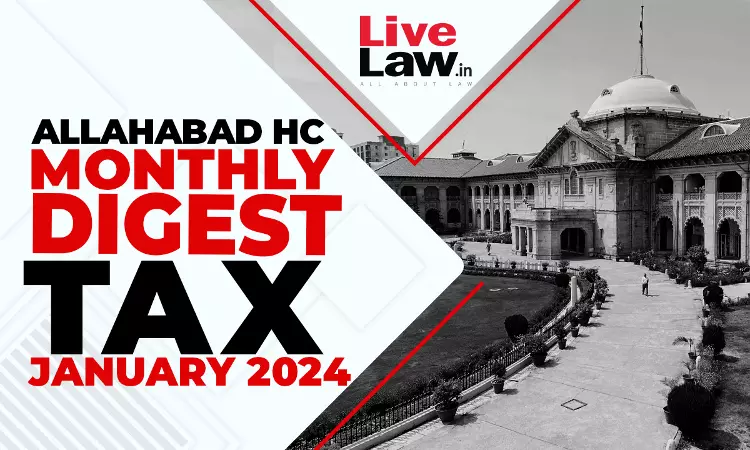- Home
- /
- High Courts
- /
- Allahabad High Court
- /
- Allahabad High Court Monthly Tax...
Allahabad High Court Monthly Tax Digest: January 2024
Upasna Agrawal
5 Feb 2024 3:00 PM IST
1. UP GST | No Interference Under Article 226 Unless Inherent Lack Of Jurisdiction Or Absence Of Relevant Material Established: Allahabad High CourtCase Citation: 2024 LiveLaw (AB) 4The Allahabad High Court has held that the writ court should not interfere in notice issued under Section 73 of the UP Goods and Service Tax Act, 2017 unless there is inherent lack of jurisdiction or complete...
Next Story



